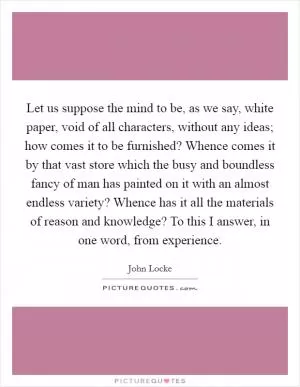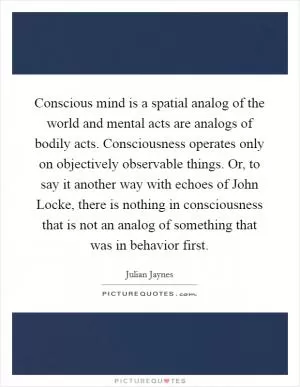Strong conceit, like a new principle, carries all easily with it, when yet above common sense

Strong conceit, like a new principle, carries all easily with it, when yet above common sense
John Locke, a prominent figure in the Enlightenment era, was a firm believer in the power of reason and common sense. In his works, Locke often emphasized the importance of rationality and critical thinking in forming beliefs and making decisions. He argued that individuals should rely on their own understanding and judgment rather than blindly accepting authority or tradition.One of Locke's key ideas was the concept of "strong conceit," which he defined as a firm belief or conviction that is not based on reason or evidence. Locke believed that strong conceit could lead individuals to overlook or dismiss common sense and rationality in favor of their own preconceived notions. He warned that strong conceit could cloud judgment and hinder the pursuit of truth and knowledge.
Locke compared strong conceit to a "new principle" that carries all easily with it, suggesting that individuals who are strongly convinced of their beliefs may be able to persuade others to adopt their views without providing sound reasoning or evidence. This can be dangerous, as it can lead to the spread of misinformation and the perpetuation of false beliefs.
Locke believed that it was important for individuals to question their own beliefs and be open to new ideas and perspectives. He argued that true knowledge could only be attained through careful observation, critical thinking, and the willingness to reconsider one's beliefs in light of new evidence.












 Friendship Quotes
Friendship Quotes Love Quotes
Love Quotes Life Quotes
Life Quotes Funny Quotes
Funny Quotes Motivational Quotes
Motivational Quotes Inspirational Quotes
Inspirational Quotes